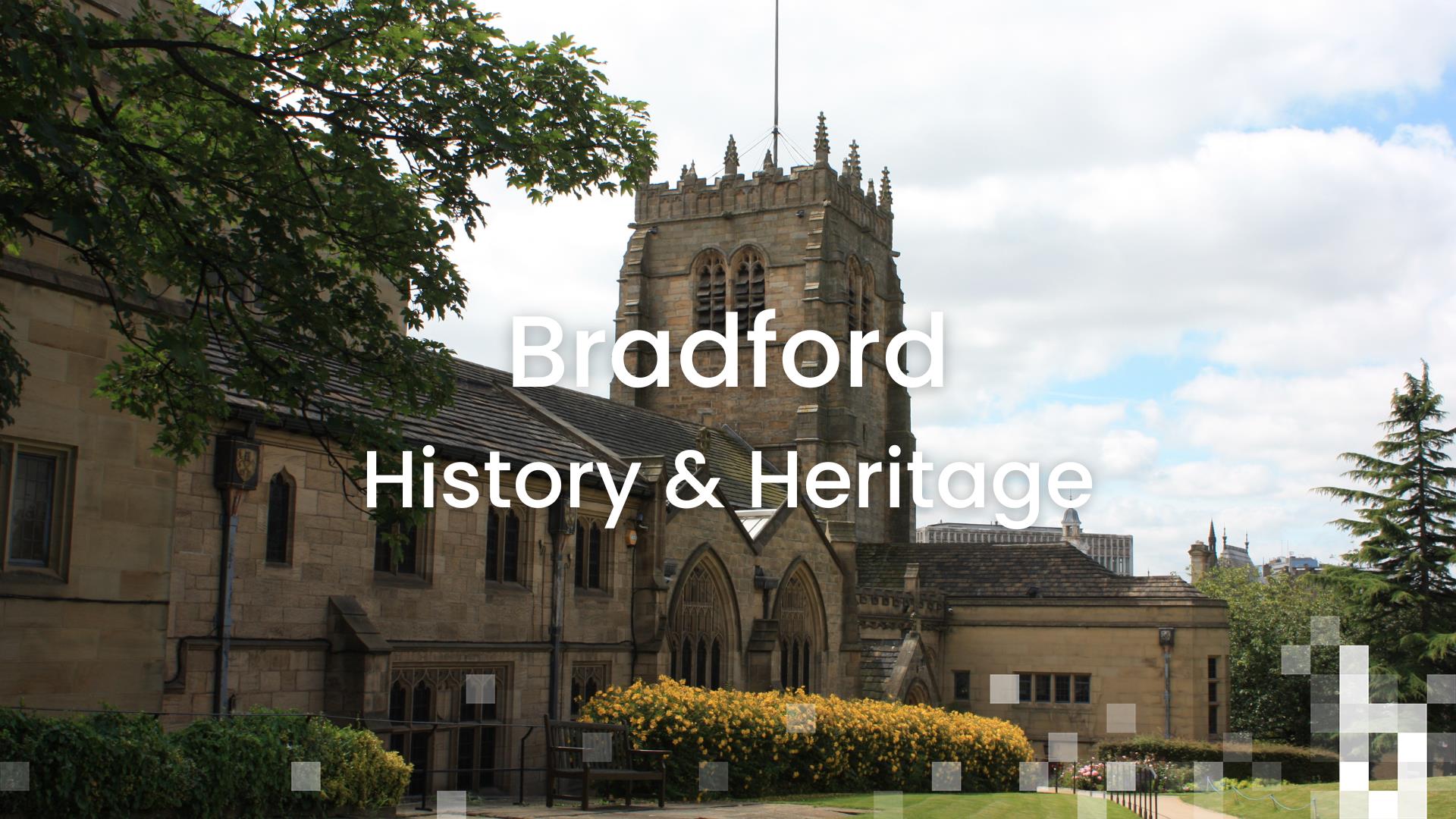'Broad Ford', later known as Bradford, was first settled in Saxon times and by the middle ages had become a small town centred on Kirkgate, Westgate and Ivegate.
The 'Manor of Bradford' was first held by the De Lacy family until 1311 and then in turn by the Earls of Lincoln, John Gaunt and the Crown before passing into private hands in 1620.
After an uprising in 1070 against the Norman conquest, Bradford was laid waste but began to extend slowly over the next two-hundred years with the woolen trade gaining in prominence. The Civil War caused a decline in the industry but with the accession of William and Mary in 1689 prosperity began to return. The launch of manufacturing in the early 18th Century marked the start of the town's development whilst new canal and turnpike road links encouraged trade.
At the turn of the 19th Century, Bradford was a small rural market town of 16,000 people, where wool spinning and cloth weaving was carried out in local cottages and farms.
By 1841 there were 38 worsted mills in Bradford town and 70 in the borough and it was estimated that two-thirds of the country's wool production was processed in Bradford. Less than ten years later, Bradford had become the wool capital of the world with a population of 100,000 leading to the development of a solid engineering and manufacturing base and a key financial centre which has continued to flourish ever since.
Industrial growth led to the rapid expansion of the city. Between 1800 and 1850 Bradford changed from a rural town amongst the woods and fields to a sprawling town filling the valley sides. The town centre expanded and its old buildings were largely replaced by new ones with lavish Victorian architecture still much in evidence today. Bradford was granted city status on 9 June 1897 and became a metropolitan district council in 1974.
Although textiles have declined during recent years, the local economy has diversified and the area now boasts impressive engineering, printing and packaging, chemical, financial, banking and export industries. High technology and the media industries are also thriving in a city which has moved with the times whilst retaining the skills, quality and innovation on which it has built a world beating reputation.
 to add an item to your Itinerary basket.
to add an item to your Itinerary basket.
 Bradford Cathedral
Bradford Cathedral






